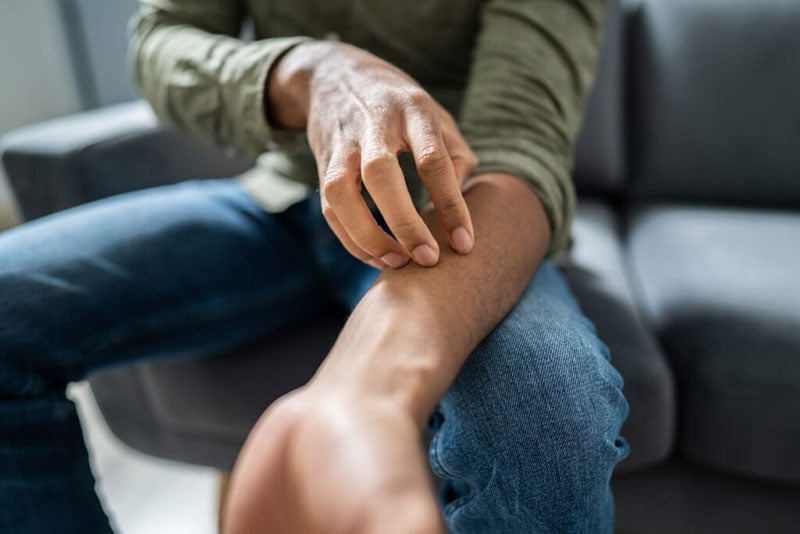Is Keratosis Pilaris Embarrassing? Insights for Beauticians
As a beautician, you may often encounter clients who feel self-conscious about various skin conditions, with keratosis pilaris being a common concern. But is keratosis pilaris embarrassing? To address this, its essential to first understand what this condition entails and how it impacts those who experience it.

Understanding Keratosis Pilaris
Keratosis pilaris, often referred to as 'chicken skin,' is a benign skin condition characterized by small, rough bumps on the skin. These bumps are usually found on the arms, thighs, cheeks, and buttocks. They are caused by the buildup of keratin, a protein that protects the skin from infections and other harmful substances. While keratosis pilaris is harmless, it can be aesthetically displeasing to some, leading them to feel embarrassed about their skins appearance.
For more in-depth information, you can visit the NHS website which offers a detailed overview of keratosis pilaris and its symptoms.
Client Concerns: Is Keratosis Pilaris Embarrassing?
While keratosis pilaris is not detrimental to health, the appearance of these bumps can lead to feelings of embarrassment, especially in social situations or during intimate moments. Clients might feel the need to cover up affected areas, which can impact their clothing choices and self-esteem. As a beautician, recognizing these emotional aspects is crucial in providing empathetic and effective care.
To gain a better understanding of how individuals cope with this condition, you might find it helpful to read about personal stories of living with KP.
How Beauticians Can Help
Beauticians play a vital role in helping clients manage keratosis pilaris. Here are a few ways you can support your clients:
1. Educate and Reassure
Educating clients about the nature of keratosis pilaris can help alleviate their concerns. Reassure them that the condition is common and not a reflection of their hygiene or health. Providing this information can help reduce feelings of embarrassment and encourage a more positive outlook.
For more tips on boosting confidence, consider exploring our guide on how to feel confident with KP.
2. Recommend Skincare Routines
Suggesting a tailored skincare routine can make a significant difference. Gentle exfoliation, moisturizing, and the use of products containing urea or lactic acid can help smooth the skins texture. Encourage clients to be patient and consistent with their regimen, as results will take time.
For an effective exfoliation strategy, you might want to look into our article on baking soda scrub for butt bumps, which can be adapted for use on other areas affected by keratosis pilaris.
3. Provide Emotional Support
Listening to your clients concerns and offering a supportive environment can help them feel more comfortable. Encourage open discussions about skin positivity and self-acceptance, reminding them that beauty is not defined by skin texture alone.
You can further explore ideas for fostering a positive mindset in our article on self-care routines for skin positivity.
Encouraging Skin Positivity
As a beautician, promoting skin positivity is key. Remind clients that keratosis pilaris is just one aspect of their skin and does not define their beauty. Celebrate diversity in skin types and encourage clients to embrace their natural texture.
For tips on discussing skin conditions confidently, you might find our article on how to talk about skin bumps beneficial.
Conclusion
In conclusion, while keratosis pilaris might feel embarrassing for some, the role of a beautician is to provide understanding, effective skincare solutions, and emotional support. By fostering a positive and inclusive atmosphere, you can help clients feel comfortable and confident in their skin.

FAQ
1. Can keratosis pilaris be permanently cured?
Currently, there is no permanent cure for keratosis pilaris. However, regular skincare routines can help manage and reduce the appearance of bumps.
2. Is keratosis pilaris contagious?
No, keratosis pilaris is not contagious. It is a genetic condition and cannot be spread from person to person.
3. What are the best treatments for keratosis pilaris?
Exfoliating and moisturizing regularly, along with using creams containing urea, lactic acid, or alpha hydroxy acids, can help improve the skins texture. Consulting a dermatologist for personalized advice is also recommended.

